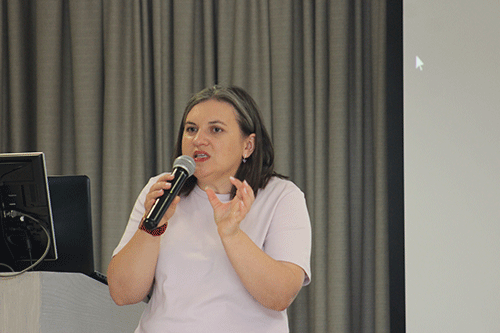Discussions around mental health can essentially be unfavourable if not done appropriately and as mental health issues continue to deeply affect societies, the role of churches has been questioned on the matter.
Deputy health minister Dr Utjiua Muinjangue said the dialogue on mental wellness and the role of the church comes at the dawn of the Mental Health Bill, which will replace the obsolete Mental Health Act of 1973.
“Providing for and supporting good mental health is a public health issue, and surely the church, faith-based organisations have a role to play in mental health,” said Muinjangue who is a trained social worker.
She said this at a conference on mental wellness and the role of the church, which was hosted at the Namibia Institute of Public Administration and Management (Nipam).
“Churches have been particularly successful in uplifting local communities from poverty through the provision of education, health services, income-generating projects, restoring human dignity and other socio-economic interventions,” she said.
The Mental Health Bill is expected to be tabled in parliament this year.
She added: “This Bill is aimed at guiding on mental health issues and will serve to protect the human rights of patients, their families and their properties.”
She added the Bill would also assist Namibia in addressing challenges, such as the lack of infrastructure and facilities to serve people with mental health conditions, shortage of skilled persons, lack of funding and investment in mental health. Muinjangue said the churches in the country have made a significant impact on the social structure of the population and have not only been successful at working to articulate their faith through a variety of methods and mechanisms and spreading the word of God.
Namibia has one fully-fledged public mental health centre at the Windhoek Central hospital, one ward at the Oshakati hospital and one private facility in Windhoek (Bel Esprit).
At the conference, clinical psychologist Maryna Mostova said churches that strive to meet the needs of their congregations must be willing to address mental health openly as this is usually complicated by the stigma surrounding mental illness.
She said when helping a person going through a mental health crisis, it is important to look for signs of suicidal thoughts and behaviours, non-suicidal self-injury, or other harm. “Suicide is a medical emergency and need to be attended by the relevant professionals as soon as possible. Take the person to the nearest medical facility or stay with the person who expressed suicidal intentions until the appropriate help is received,” she stated.
The implementation of the Mental Health First Aid Action Plan is something that should be taken seriously when matters are being resolved at churches.
“Listen in a non-judgmental way. It may seem simple, but the ability to listen and have a meaningful conversation requires skills and patience. Listening is critical in helping an individual feel respected, accepted, and understood. It is important in non-judgmental listening to use a set of verbal and nonverbal skills such as open body posture, comfortable eye contact,” said Mostova.
She added: “The most important skill is to stay calm! Give reassurance and information. It is important to recognise that mental illnesses and addictions are real, treatable illnesses from which people can and do recover.”
Mostova also said when talking to someone you believe may be experiencing symptoms of a mental illness, approach the conversation with respect and dignity and cautioned not to blame the individual for his or her symptoms.
Ludwig Beukes from the Council of Churches in Namibia said mental wellness and the role of the church should become an annual event and that the first aid toolkit booklet must be developed to assist the churches for early detection.
“The church should treat mental wellness like any other diseases and that will enable it to provide psychosocial support. The church must have a multi-disciplinary approach where it can work closely with mental health professionals.
“Churches must train mental wellness coaches that can serve as a bridge between pastors, congregation and mental health professionals,” said Beukes.


